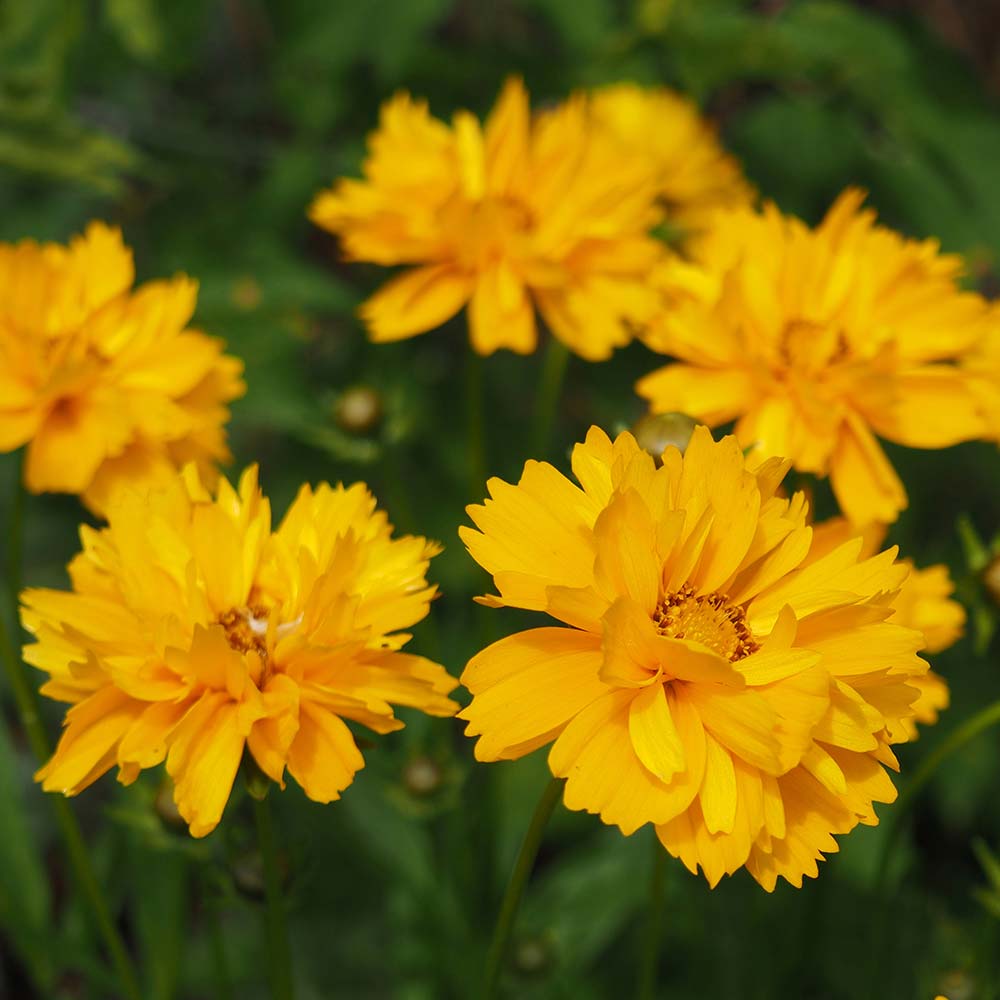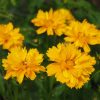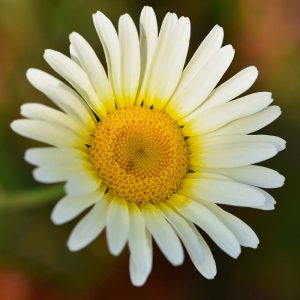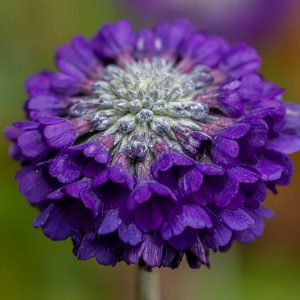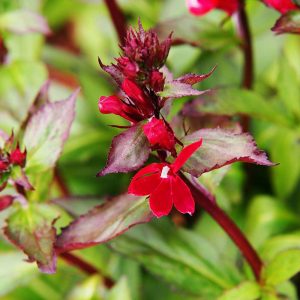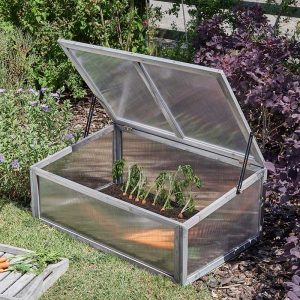Description
Coreopsis are mainly found in the Great Plains of North America, with members of the Genus found throughout the Americas. Members of the Daisy family they produce flowers in shades of red or yellow and can be bicolored, as well as being available in double varieties. Often grown in prairie planting schemes they look great planted alongside grass and have long flowering seasons, normally all through Summer and into Autumn,
Key Facts
- Common Name(s):Tickseed ‘Double the Sun’
- Hardiness:Fully hardy through most of the UK
- How big will I get? Coreopsis grandiflora ‘Double the Sun’ can grow to a height of 0.5m and a spread of 0.5m.
- Did You Know That:The name Tickseed comes from how similar the seeds look to insects, namely ticks found across its native range
Plant Calendar
A rough guide to how this plant will change through the year.
| Jan | Feb | Mar | Apr | May | June | July | Aug | Sept | Oct | Nov | Dec | |
| Flowering Time |  |
 |
 |
 |
||||||||
| Foliage Colour |  |
 |
 |
 |
 |
 |
 |
 |
 |
| J | F | M | A | M | J | J | A | S | O | N | D |
 |
 |
 |
 |
||||||||
 |
 |
 |
 |
 |
 |
 |
 |
 |
Care Guide

Soil Requirements
Coreopsis grandiflora ‘Double the Sun’ prefers moist but well-draining soil. This plant can grow in soil with a wide range of pH levels, it is not picky about the pH level of the soil.

Best Position
Coreopsis grandiflora ‘Double the Sun’ can handle either an exposed or a sheltered position and can cope with either full sun or partial shade.

Maintenance
Coreopsis grandiflora ‘Double the Sun’, like a lot of herbaceous perennial plants, will respond well to regular deadheading. This will encourage the plant to keep producing flowers all through Summer and into early Autumn. The plant can then be cut right back to the ground in Autumn, once it has concluded flowering, this will help to preserve energy for strong growth the following Spring.

Pest, Diseases and Wildlife
Coreopsis grandiflora ‘Double the Sun’ can have problems with slugs and snails, and it tends not to have problems with diseases. It is also known to attract bees, butterflies and other pollinators. It is not considered to be toxic.
